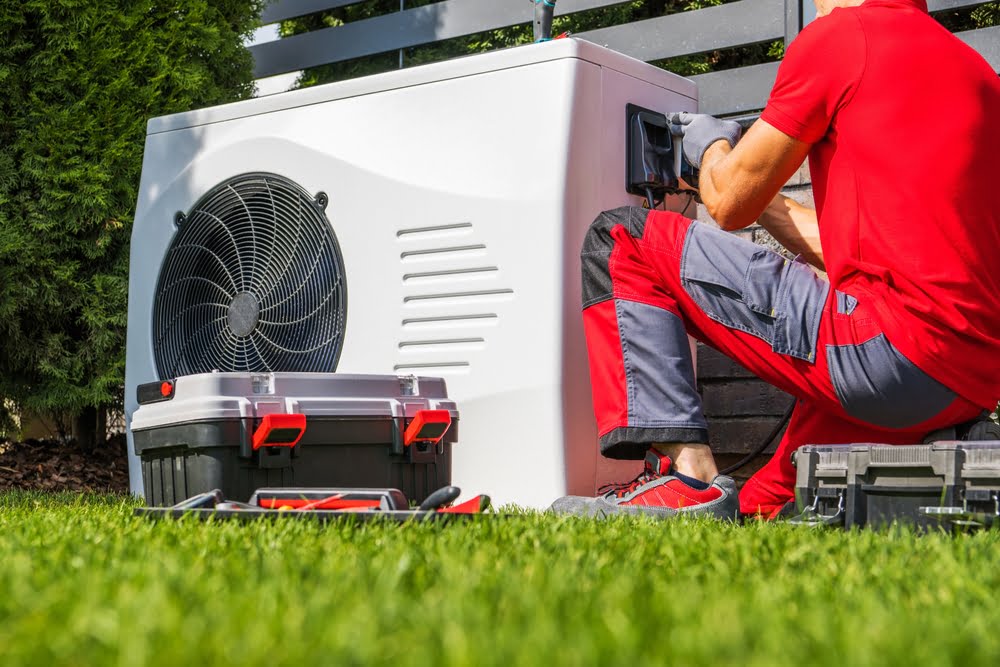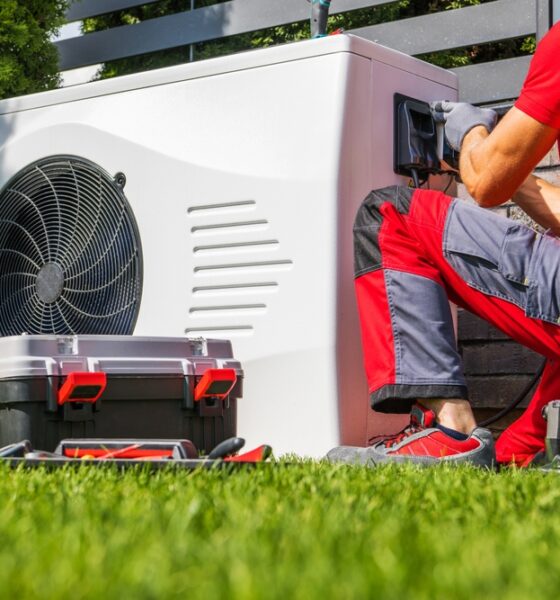

Environment
Why Heat Pumps Could Be the Key to Tackling Climate Change
We keep hearing more stories about the dangers of climate change. One recent news story from Aljazeera shows that Nile fishermen in Sudan are worried about how climate change is causing a drop in the local fish population. We also read a story about a man that was so worried about climate change that he took the advice of an AI chatbot to end his life to save the planet. While we certainly don’t condone this decision, we understand that it reflects how anxious people have become over climate change.
The looming global warming and climate change aren’t new threats. As the world has developed we’ve learned to recognize the impact of human actions and greenhouse gases on the environment, but to some extent, we underestimated its effects. Or more accurately, we underestimated just how fast it’d catch up to us.
President Biden has recently pledged to invest more in renewable energy. However, more needs to be done to solve the issue.
But there’s one piece of technology that experts are toting as the key for the domestic heating industry to reduce emissions– heat pumps. Both air and ground source heat pumps have been around for decades, but we haven’t been able to properly utilize them at a larger scale until recently. Read on to find out how heat pumps are the future of heating and the key to tackling climate change.
The climate crisis
Climate change is one of the biggest issues facing humanity today and it’s only getting worse. Again and again, scientific reports repeatedly say that the time to act is now. The Intergovernmental Panel on Climate Change (IPCC) has warned that unless we take action, global temperatures could rise by up to 5.7ºC by 2100.
This would lead to a dangerous increase in extreme weather events, such as floods and droughts, as well as rising sea levels which could flood low-lying areas of the world and cause billions of dollars worth of damage. This is not even beginning to mention the potential loss of lives.
And it probably doesn’t come as a surprise to find out that climate change is already affecting every inhabited region across the globe. We’re seeing hot extremes, heavy precipitations, agricultural and ecological drought, and more.
And there’s one clear conclusion from many environmental reports: Global warming is driven by emissions from human activities.
In response, we’ve seen more than 70 countries pledge to have net-zero emissions. This includes the biggest polluters as well –China, the United States, and the European Union. In total, all countries make up 76% of global emissions.
If we break it down even further, 17.5% of global greenhouse gas emissions come from energy use in buildings. That means there’s a lot of potential for the future of heating to change things. And there’s one heating solution that boasts environmental benefits that’s enticing governments to implement it on a larger scale. That solution is using heat pumps.
Finding the solution in heat pumps
More options than ever before are available to us for heating and cooling our houses in the last ten years. Many of these more recent solutions are more energy-efficient and environmentally responsible than older ones. However, the majority of households still heat their homes using fossil fuels like gas, coal, and oil.
For instance, heat pumps, which are powered by electricity, can reduce carbon emissions by up to 7 metric tonnes each year according to the Energy Saving Trust. The advantages don’t end there, either. They also have a longer lifespan, require less maintenance, and can reduce your annual energy costs by up to 4x compared to a contemporary gas boiler. Yet how do they accomplish this?
Heat pumps use electricity to extract heat from one place and move it somewhere else — for example from the air outside into your home during winter. But this also means they can be used all year round. They’re already widely used in many countries around the world, but they aren’t yet used on a large domestic scale.
There are lots of energy possibilities with heat pumps. For instance, they can be powered by electricity, combined with solar panels, boilers or other renewable technology to possibly produce both heat and power at once (known as hybrid heat pumps).
But the key solution that heat pumps hold lies in their energy efficiency. The efficiency can range anywhere from 300% to 500%. You realize just how high this is when you compare it to the popular gas boiler’s efficiency of 92%. In the simplest terms, this means that for every unit of energy you use on a heat pump, you get 3 to 5 times that amount in return.
Why don’t all households have heat pumps?
To get straight to the point, the answer is heat pumps can be expensive for many households. A 2022 study by Nesta, a UK innovation agency, found that 25% of UK homeowners are willing to pay the full cost of heat pumps.
While this is a reassuringly high proportion of homeowners, it’s still clear that the cost is one of the largest barriers to adoption that’s stopping heat pumps from becoming a solution for the future of heating. And in the UK, 37% of all homes need to transition to heat pumps to reach the UK government’s target of 600,000 annual installations.
But in the future, homeowners may have less of a choice as more governments plan to roll out a plan to phase out gas boilers. But this phase-out is not done blindly. There’s support for transitioning to heat pumps in the form of grants and schemes. This helps lower the upfront costs of installing a new energy-efficient heating system.
Conclusion
The carbon imbalance that humans have created is a serious issue, but it should give us hope that the climate may not be as unpredictable or as far away from a solution as we often make it out to be. We can reduce our carbon emissions in many ways, and using heat pumps is one of them. Widespread adoption would certainly make a big difference.
Once we as a world reach net zero carbon dioxide emissions, the global temperature will stabilize. But we’re on a long hard path there. If you want to learn more about air or ground-source heat pumps, read more about the 12 things you probably didn’t know about heat pumps.
































